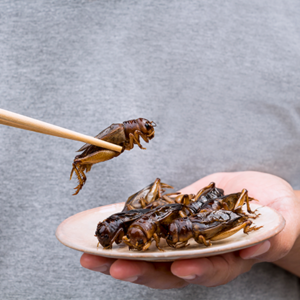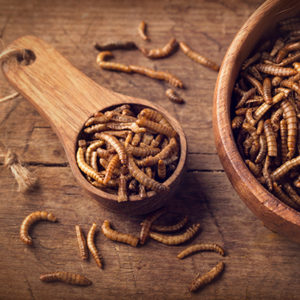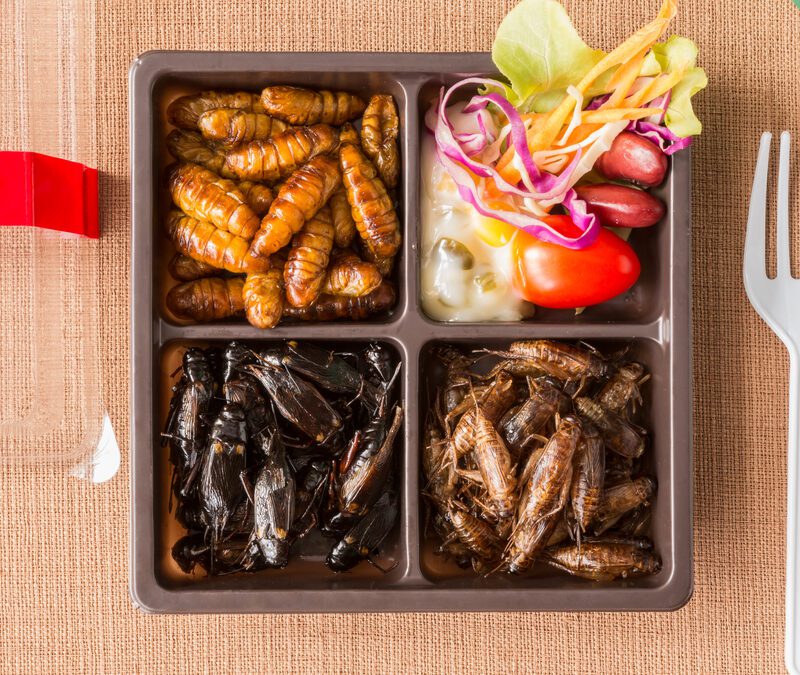- America's #1 lawn care company.
- 225-752-7252
The Incredible Edible World Of Insects and Where to Get Pest Control

Protect Your Ash Trees From the Emerald Ash Borer Beetle
September 7, 2021
9 Tips to Prevent and Treat Weeds This Spring
October 6, 2021Most of us have seen one or two episodes of those survivor-type shows, you know, the ones where folks are stranded on an island, in the desert, or on a mountain. In these shows, they often have to eat things most of us would never dream of eating or have to worry about. In Louisiana and Mississippi, we have an abundance of meat, vegetables, and sources of protein. However, in many other countries, insects are a part of their everyday diet. What we view as creepy-crawly insects, they consider them Bon appetite in many other parts of the world.
Believe it or not, many bugs are packed full of protein and nutrients. While ingesting a bunch of hairy, bug-eyed creatures may not be your thing, the notion that some of these pesky little creatures are edible is truly quite fascinating.
Increased Health Benefits
While nutritional values vary considerably depending on the insect and how it’s cooked, most edible insects provide sufficient amounts of energy and protein. The average insect is around half protein by dry weight, with some insects (such as locusts) up to 75% protein.
According to the Food and Agricultural Organization of the United Nations, they are also rich in healthy fats, iron, calcium, and low in carbohydrates. A half-cup of crickets contains only 121 calories, 12.9 grams of protein, 5.5 grams of fat, and 5.1 grams of carbohydrates. As a comparison, a half-cup of ground beef contains 23.5 grams of protein and 21.2 grams of fat.
Insects also have a high content of mono and polyunsaturated fatty acids, are rich in copper, iron, magnesium, phosphorous, zinc, and vitamins, including riboflavin, biotin, and folic acid.
The Environmental Factor
According to the World Health Organization, in 2018, there were 7.5 billion people on our planet, and 815 million of them were undernourished. By 2050, United Nations estimates the world population will reach 9.8 billion, requiring us to double our food production. Unlike most of the meat we eat today, insects do not require a lot of resources to mass-produce. They emit much lower levels of greenhouse gasses than livestock and require much less time and effort. They are also small when compared to other animals and take up a fraction of the space, eliminating the need for deforestation.
Insects could also be used indirectly as feed for livestock and aquaculture, helping to reduce the amount of land and water currently used to grow animal feed crops.
Which Insects in Mississippi and Louisiana Are Edible?
Many of the insects that reside in both Mississippi and Louisiana are edible. In general, stray away from brightly colored insects as they are typically poisonous and any insect that emanates a foul odor. Our resources say that camouflaged insects usually taste better, although the author of this article has not tasted any bugs to verify this.
Our list below doesn’t include all edible insects within our geographic location, but these are the critters most commonly eaten in other parts of the world that also reside here.
- Crickets
- Cockroaches
- Beetles
- Butterflies
- Moths
- Dragonflies
- Mayflies
- Termites
- Flies
- Ants
- Grubs
- Earthworms
What Is the Best Way To Eat Insects?
While some cultures eat raw insects, experts suggest cooking insects for a more favorable taste. You can roast, grill, bake or pan sear. Cooking them all the way through will also help eliminate any harmful toxins, parasites, or insecticides the bugs ingest. While you can eat the wings and legs on most insects, our sources suggest you remove them as they don’t have much nutritional value anyway. If you find yourself lost on a camping trip or stranded in a desert, stick with the worms, grubs, crickets, and beetles, and you should be fine.
Allow TruGreen’s Highly Effective Pest Control to Protect Your Family
Thankfully, we do not need to worry about having to eat insects just yet. And hopefully, we never will. At TruGreen Midsouth, we know how fast a pest infestation can ruin your outdoor fun. With our warmer temperatures in Mississippi and Louisiana, we have a plethora of insects ready to wreak havoc on your grass and garden beds. Don’t allow your yard to become overrun. Call the professionals at TruGreen and learn more about our highly effective pest control service. We treat a variety of insects, including beetles, spiders, fire ants, mites, and grubs. Whether you’ve discovered a full-blown outbreak or want to take proactive measures to safeguard your loved ones, TruGreen’s effective insecticide strategies can prove the perfect outdoor pest control solution.
You can reach us online via our online contact us form or give us a call. If you reside in Mississippi, call us at 662-330-1330. If you live in Louisiana, give us a ring at 1-225-465-0665.
Did you miss our last blog article? Never fear. You can check it as well as all other blog articles out here. We also have Facebook pages in both of our locations. For folks living in Mississippi, check us out here. Live in Louisiana? You can find us on Facebook here.




